Introduction
Let me start by telling you everything you already have heard about Cobra Kai. It’s “more entertaining than you’re probably expecting” (Hollywood Reporter), “surprisingly satisfying” (The Skinny) and “shouldn’t be this good” (Gamespot). It’s a “crane kick of nostalgia right to the throat” (NPR), and yet “does more than just wax nostalgic” (TVLine). It was the breakout hit of last summer for the fledgling YouTube Red streaming service (now renamed to YouTube Premium)—“a Peak TV surprise” (Den of Geek). No, I did not make that up.
The point is, it’s good. Really good. But you, my friend, are a 25YL reader, and let’s face it, you might just be a bit of a TV snob. Nothing wrong with that of course, but it might have inclined you to turn up your nose at the idea that a show could have the audacity to engage its audience’s desire for nostalgia, have a plot so conventional that it telegraphs all of its moves from a mile away, and yet still be worth viewing. I’m going to try to help you see past all of that.
Nostalgia
The original The Karate Kid (1984) movie was a classic underdog tale of the ‘80s. The director, John G. Avildsen, won the Academy Award for directing the original Rocky in 1977, so the pedigree is certainly there. It was a feel-good movie full of black and white, one-dimensional characters, and we ate it up. Cobra Kai picks up the story 34 years later as Johnny Lawrence and Daniel LaRusso cross paths again. This incarnation “flips the script” and presents Johnny as the hero, or more in keeping with modern times, the anti-hero. A hero with flaws. Johnny and Daniel have also flipped roles, with Daniel now being the “rich kid” with the seemingly perfect life and Johnny as the outsider “poor kid”.
Yes, this show gives us a healthy serving of nostalgia. Johnny, in particular, is mired firmly in his past, listening to the same old music, watching the same old movies, and generally living the life of a teenager trapped in an older man’s body. In an interview for Vehlinggo, the guys who scored Cobra Kai, Leo Birenberg and Zach Robinson, talk of “developing three unique musical worlds” for Johnny, Daniel and the new generation [2]. Johnny’s in particular has all of the throwback references to the hard rock and hair metal that defined the ‘80s. As a fan, I can tell you that the soundtrack is deeply satisfying.
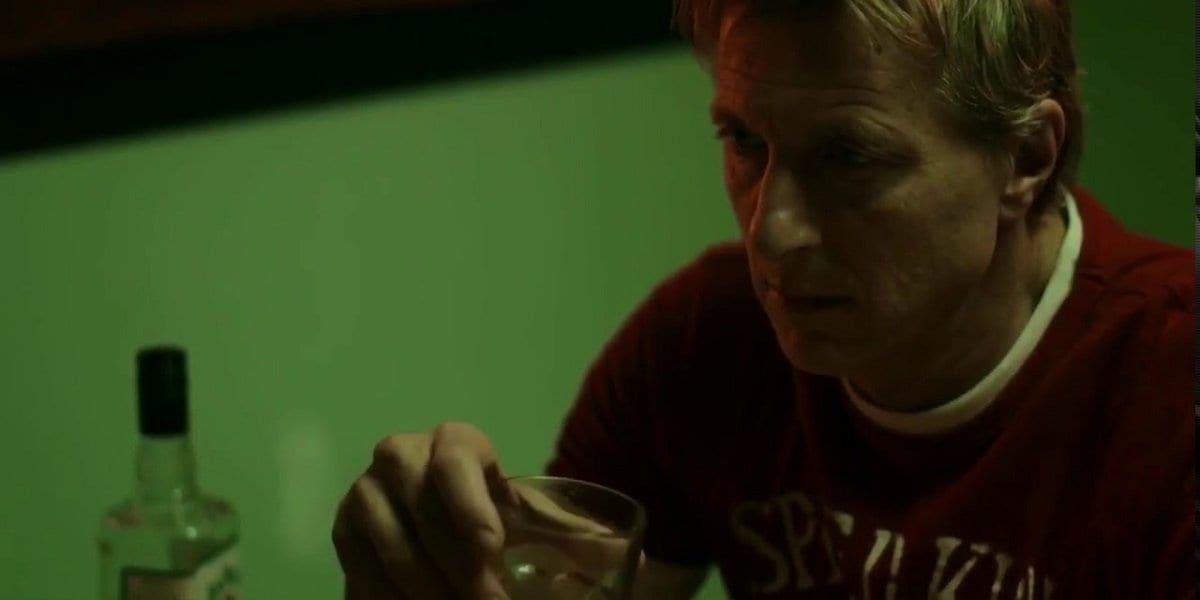
It’s quickly apparently though that Johnny’s obsession with the past is not a healthy one. He relives his defeat in the tournament and betrayal by his sensei in his drunken dreams, and is living out his life as a self-prescribed loser. Daniel seems to have moved on, having a loving family and a successful business, but hints are dropped throughout that he never truly moved on either, and seeing the resurrection of the Cobra Kai dojo triggers all his old insecurities.
A lot of the humor comes from placing these ‘80s guys in present day situations. Especially Johnny, who seems completely oblivious to political correctness in its modern incarnations. This “fish out of water” trope makes for good fun, but the juxtaposition also provides a platform for social commentary. It draws out some surprising reactions in the younger characters on the show. Surprising because they are just as out of place in today’s culture as the overt political incorrectness of the two older protagonists.
The Evolution of Political Correctness
In the September 2015 issue of The Atlantic, an article was published under the title “The Coddling of the American Mind”. The authors, Greg Lukianoff and Jonathan Haidt, began their article with the following introduction:
“Something strange is happening at America’s colleges and universities. A movement is arising, undirected and driven largely by students, to scrub campuses clean of words, ideas, and subjects that might cause discomfort or give offense.”
The “coddling” they are referring to a form of over-protectiveness that goes beyond protecting kids from things that cause actual harm, and moves into a realm of protecting them from words and ideas. It goes beyond mere political correctness, attempting to turn campuses into “safe spaces” where the theoretical victims engage in “vindictive punishment” of anyone who steps out of line. This movement is characterized by the steady rise in the use of the terms “microaggression” and “trigger warning” on campus.
Cobra Kai comes to us in the wake of this movement and, I believe, intentionally addresses some of these concerns. In doing so, it acknowledges the errors of the past, but it also reaches into the past for solutions.
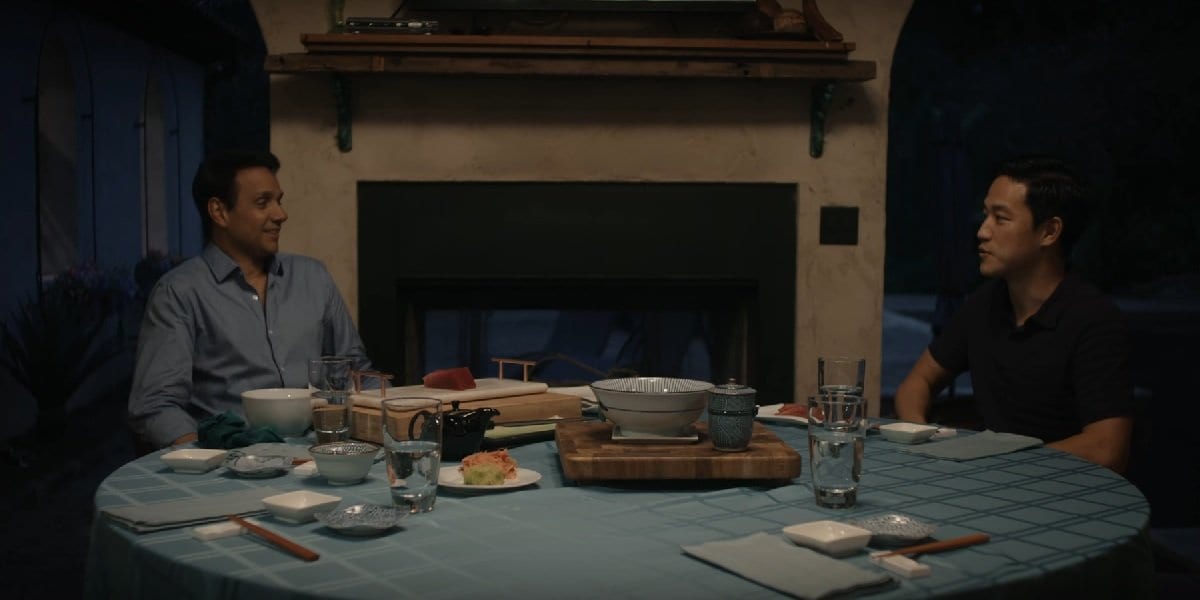
Microaggressions
Microaggression: A subtle but offensive comment or action directed at a minority or other nondominant group that is often unintentional or unconsciously reinforces a stereotype. (Dictionary.com)
When they first bring up the term “microaggression”, Lukianoff and Haidt use the following example:
“For example, by some campus guidelines, it is a microaggression to ask an Asian American or Latino American ‘Where were you born?,’ because this implies that he or she is not a real American.” [1]
Daniel makes this very error with Kyler when they are left alone at the dinner table in episode 2. Having just reminisced about his friend from Okinowa, he asks “Where are your parents from?” Daniel, who has immersed himself in Asian culture and considers Mr. Miyagi a father figure, is the one white guy you’d expect to be sensitive to racism against Asian-Americans, overt or implied. Yet here he is, engaging in what amounts to the standard bearer of microaggressions with his daughter’s new boyfriend. More telling though is Kyler’s reaction. He answers “Irvine…I think”. He’s completely unaffected.
The same thing happens early on in the first episode between Johnny and Miguel. When Miguel introduces himself to Johnny as his new neighbor, Johnny quips “Great, more immigrants.” Miguel gets a look of confusion on his face and replies “Actually, we’re from Riverside” and just keeps rolling. Again, the younger generation, as portrayed here in Cobra Kai, is unfazed by the racism of the older generation. He’s not insulted by Johnny implying he’s an immigrant or calling him “Menudo”. As Johnny walks away from him, he still says “OK, well…have a nice day, I guess?”
These kids are not the oversensitive crybabies that college campuses have been trying to protect from scary thoughts and words. Those students, as described by the article, would be losing their collective minds over Daniel’s microaggression, let alone the in-your-face macro-aggression of Johnny. To the younger generation of Cobra Kai though, these words are lent as much credence as they deserve. It’s just grandpa in his bathrobe shouting at the kids to get off his lawn.
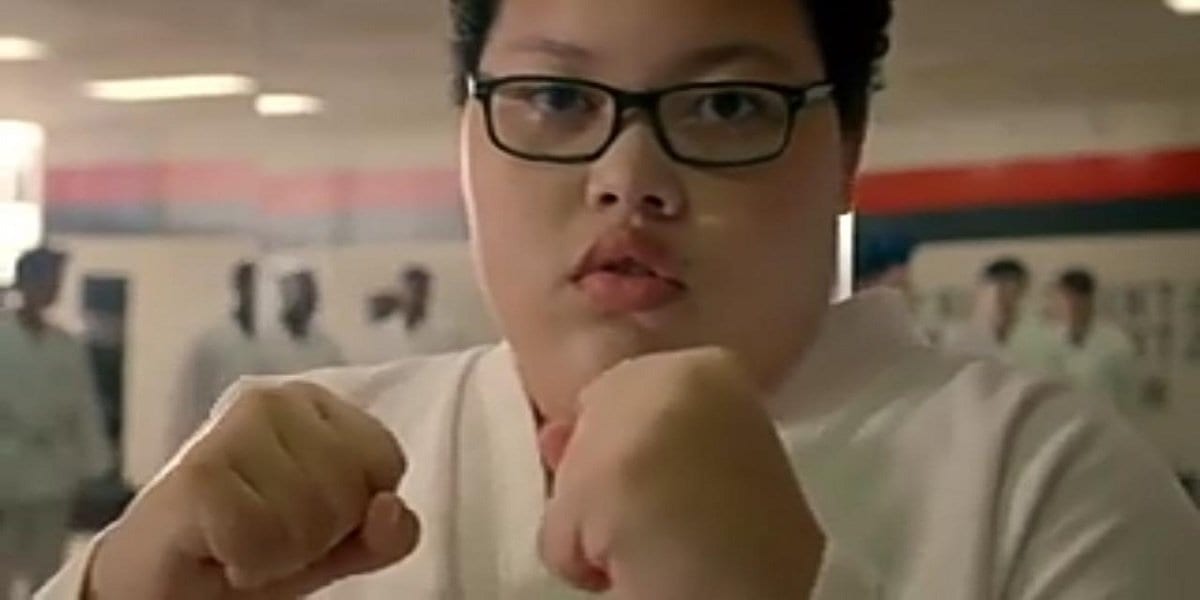
Trigger Warnings
Trigger warning: A stated warning that the content of a text, video, etc., may upset or offend some people, especially those who have previously experienced a related trauma. (Dictionary.com)
Trigger warnings attempt to prevent an offense before it even occurs. Students are warned that a class is going to discuss a “triggering” subject, such as sexual abuse, so that the students can avoid reliving a painful experience.
The real problem with enacting trigger warnings lies in the adverse effect it has in maintaining and elevating the anxiety. Trigger warnings can even act to create irrational fears in people who have never experienced the actual trauma being protected against. Kids are told that they need to avoid these thoughts and ideas, and as a result they develop an irrational anxiety around them without ever having actually been exposed.
In order to overcome a true anxiety disorder, psychologists do not have their patients avoid the object of the fears. Instead, they subject their patients to those fears, slowly re-introducing through a process called exposure therapy. So, for example, if someone has an irrational fear of elevators, a psychologist might have them first just stand in a lobby with an elevator, then work up to pushing the call button, then step in and step out, and eventually ride the elevator. Reducing the fear incrementally through exposure.
Once he has a dojo full of students, Johnny realizes many of them are “flinchers” because they’ve never been punched in the face. He enacts his own version of exposure therapy by making each and every one of them take a punch to the face right there that very day. Through exposure, he will reduce their fear of the unknown.
Now that might be a little extreme, but he has the same philosophy with regard to words. Prior to that scene, just before Hawk makes his big, script-flipping debut, Johnny makes the following little motivational speech to his student:
“Since you joined Cobra Kai, I have been hard on you. I’ve called you names. I’ve humiliated you. Some of you I’ve hit. And for that, I don’t apologize. Cobra Kai is about strength. If you’re not strong on the inside, you can’t be strong on the outside.”
Johnny is preparing his students for the real world. People are going to be mean, cruel even. Opponents are not going to fight fair. He doesn’t protect them, he prepares them.
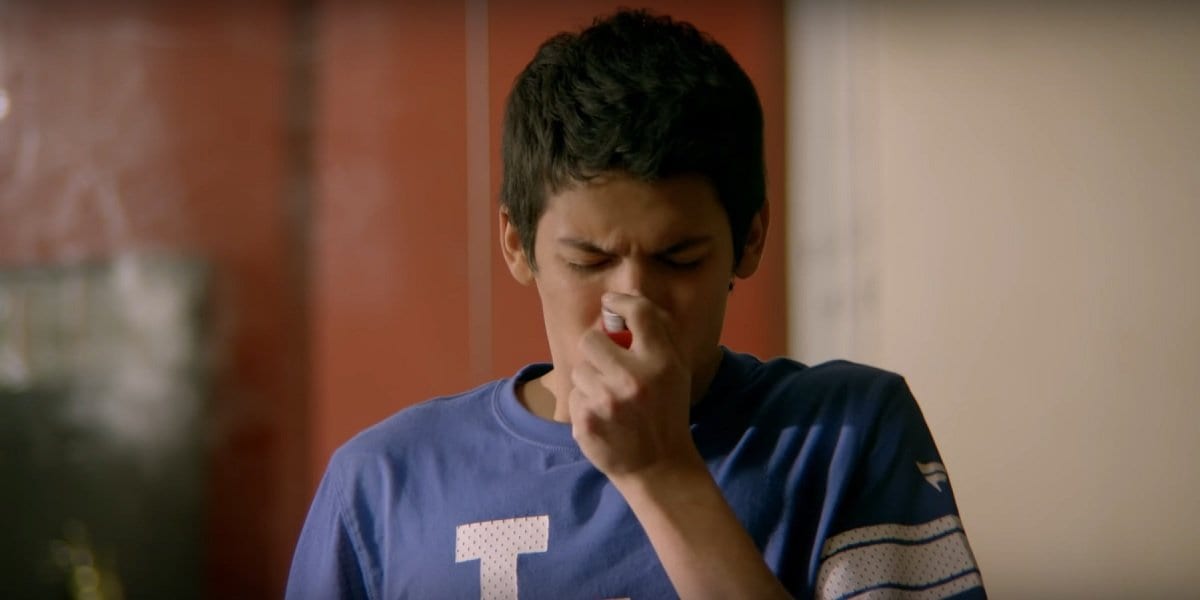
Made Up Allergies
Sometimes the harm we think kids need to be protected from is not just verbal or physical.
Johnny: “We do not allow weakness in this dojo. So you can leave your asthma and your peanut allergies and all that other made-up bullshit outside. Is that understood?”
Miguel: “Yes, but those are real medical problems. I was—Yes, Sensei, understood.”
In 2018, three years after their controversial article, Haidt and Lukianoff wrote a book of the same title and fleshed out some of the ideas [3]. In the book, they propose what they call the “Three Great Untruths” that have led to the behaviors they are commenting on. The first of these in the “Untruth of Fragility”: what doesn’t kill you makes you weaker. That’s right, not “stronger”, but “weaker”. That’s why it is an untruth.
In discussing this idea, the first example they use is, weirdly enough, peanut allergies. They cover the fact that peanut allergies are indeed on the rise in America, with the rate tripling from the mid-1990s (3 in 1000) to 2008 (14 in 1000). Why? Because kids were being “protected” from peanuts instead of exposed to them.
“Thanks to hygiene, antibiotics and too little outdoor play, children don’t get exposed to the microbes as they once did. This may lead them to develop immune systems that overreact to substances that aren’t actually threatening–causing allergies. In the same way, by shielding children from every possible risk, we may led them to react with exaggerated fear to situations that aren’t risky at all and isolate them from the adult skills that they will one day have to master.”
Again, Johnny’s dismissive attitude is a bit over the top perhaps, but he’s not entirely wrong either.
Bullying
To Daniel and his mom, Cobra Kai back in the day was “nothing but a bunch of bullies.” Sam defends the current incarnation, asking “They can’t all be bullies, right?” Certainly none of them started out that way. When Johnny looks around at his dojo full of new students, he sees “nerds” and “losers”. These are not the bullies. These are the kids that get picked on by the bullies. Miguel was being bullied by Kyler. Aisha was being bullied by Yasmine.
The irony is that Johnny, who is supposed to be this alpha male bully, is actually working to make his students bully-proof. As he eludes to in his speech to the tournament committee:
“Look, I admit Cobra Kai had its share of problems in the ’80s. My sensei didn’t always play by the rules. That’s why I left. But my Cobra Kai is different. It’s a place where kids can come and feel like they belong. Where they won’t get picked on just because they’re a bunch of losers. Er, because they’re unique. I’ve watched firsthand as my students have gotten stronger. Gained confidence. Learned how to stand up for themselves. Cobra Kai is making a difference in these kids’ lives. And honestly, they’re making a difference in mine as well. Thank you.”
Is Johnny turning them into bullies? I’d say that remains to be seen. What he is doing however is stopping their decline into victimhood.
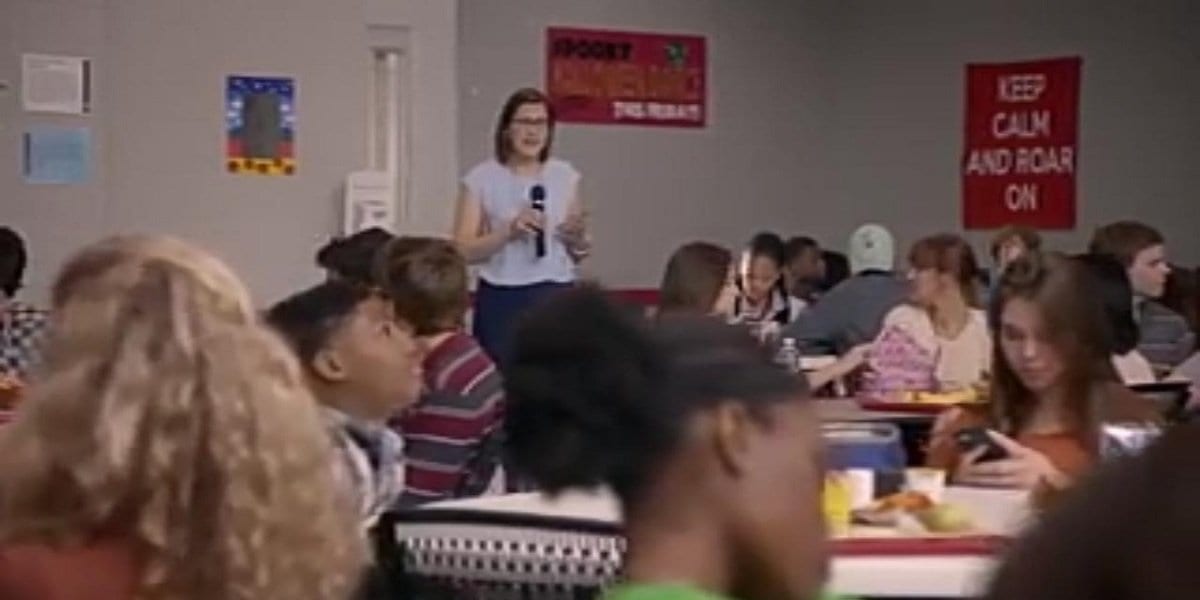
Cyber Bullying
Cobra Kai tackles cyber bullying as well, but with a more direct message. First, the school’s attempts to address cyber bullying are played as ridiculous and laughable. The guidance counselor is holding an impromptu assembly in the cafeteria and lays these sage words on the student body:
“Cyber bullying is no laughing matter. Sending a cruel message to someone online can be just as hurtful as saying it to their face. I’m not gonna name names, but the other day a mother called me up because her son was crying after some kids online made fun of his facial deformity. But today, our goal here is to make this school a safe space for all students.”
Not only does she out Eli and thereby enable his bullies by tipping them off to the success of their efforts, but she also, just as in the case of trigger warnings, plays up bullying as something the students need to be kept “safe” from.
Johnny, of course, sees it a different way. When Aisha explains to him how she has been cyber bullied online by anonymous kids using fake accounts, he seems at first to be sympathetic to her, saying “oh my god”. But then he continues:
“What a bunch of pussies. Back in my day, if you wanted to tease someone, you did it to their face. There was honor, respect. These geeks hiding behind their computers, what a bunch of spineless losers.”
When framed that way, Aisha sees that she’s not afraid of these losers and she’s not going to take shit from these losers.
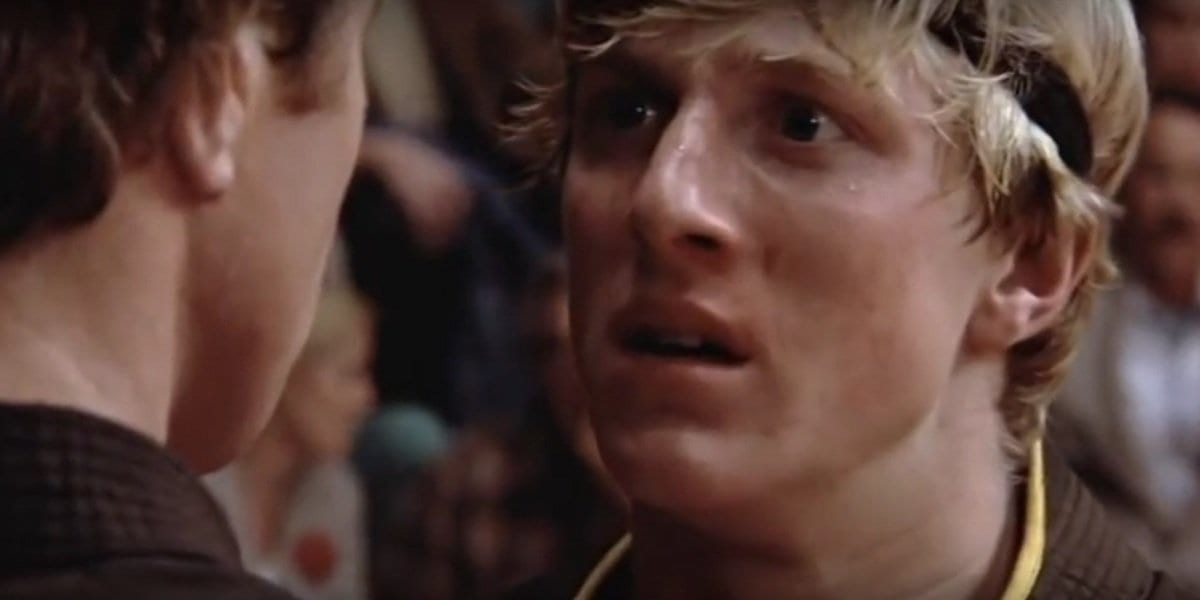
Honor
That’s the thing with Johnny, and even with Daniel as well. They both have a sense of honor. Johnny knows he fought dishonorably in the original tournament from The Karate Kid. His sensei told him to take the cheap shot and he did it. To some extent, Johnny lashes out at everyone because he hates himself.
In the modern tournament, Johnny figures out too late that honor is an aspect of karate that he did not train into his students.
Miguel: I found his weakness, Sensei. It’s his shoulder.
Johnny: Look, I know we want to win, but it’s got to be the right way. We don’t have to fight dirty.
Miguel: Dirty? There’s nothing dirty about winning, Sensei. You taught me that.
Early on, Daniel completely loses his way and fights dirty in a different manner. He goes after Johnny indirectly by getting his rent raised, hoping to drive him out of business. When he explains his brilliant scheme to his wife, her thoughts immediately go to the other stores in the strip mall who were hurt by his actions.
Daniel: “The guy spray-painted a dick on my face.”
Amanda: “So what? He’s an asshole. Don’t let him turn you into one.”
This may ultimately be the final commentary of the show on today’s modern culture. We are sorely in need of honor. Not a full-fledged honor culture where we bring back duels and never ending hillbilly family feuds. But a type of honor where we take responsibility, where we play by the rules, and where sticks and stones may break our bones, but words really cannot ever hurt us.
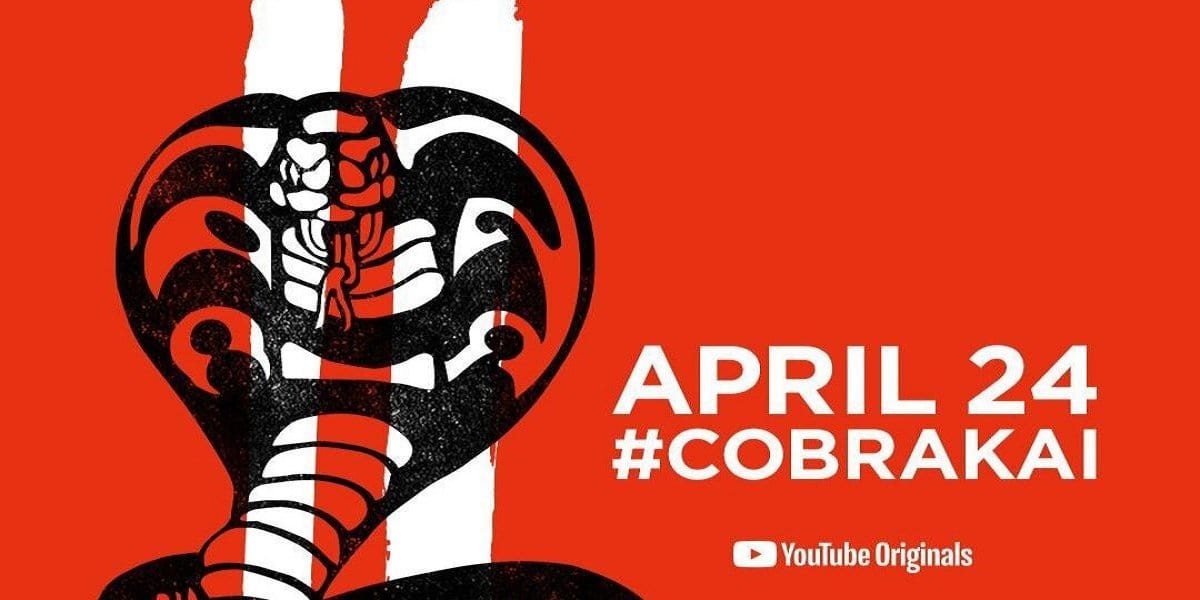
Notes / References:
- “The Coddling of the American Mind” (The Atlantic, September, 2015): https://www.theatlantic.com/magazine/archive/2015/09/the-coddling-of-the-american-mind/399356/
- “How to Score ‘Cobra Kai’: An Interview with the Composers” (Vehlinggo, May 10, 2018): https://vehlinggo.com/2018/05/10/cobra-kai-soundtrack-interview/
- Haidt, Jonathan and Lukianoff, Greg. The Coddling of the American Mind: How Good Intentions and Bad Ideas Are Setting Up a Generation for Failure. New York: Penguin Press, 2018


Great article
Loved this article.